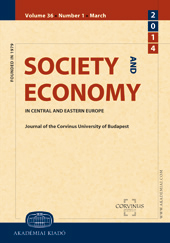Does Buddhism have much to offer in terms of reduction in global CO2 emissions? A panel data analysis
Does Buddhism have much to offer in terms of reduction in global CO2 emissions? A panel data analysis
Author(s): Jungho SuhSubject(s): Supranational / Global Economy, Energy and Environmental Studies, East Asian Philosophy, Environmental interactions, Sociology of Religion
Published by: Akadémiai Kiadó
Keywords: IPAT equation; fixed effects; random effects; panel cointegration;
Summary/Abstract: The primary intent of this paper is to statistically test whether Buddhist countries tend to contribute to global warming mitigation in comparison with other religious groups of countries. A sample of 160 countries were classified into seven groups coded as ‘Buddhist’, ‘Hindu’, ‘Muslim’, ‘Catholic’, ‘Protestant’, ‘Christian mixed’ and ‘None of the above’. This study modeled the religious heritage of a nation into the IPAT equation (Environmental Impact = Population × Affluence × Technology), religion being as a cultural proxy of the technology factor. ‘Buddhist’ countries were found likely to emit lower CO2 compared with ‘Protestant’ and ‘Christian mixed’ countries, although likely to emit higher CO2 compared than ‘Hindu’, ‘Muslim’ and ‘Catholic’ countries, all other factors being held equal. The relatively low group effect of ‘Buddhist’ countries on CO2 emissions can be interpreted to support the argument that teaching Buddhist economics and ecology could be a useful ingredient to curb ever-increasing global CO2 emissions. Thus, further study is warranted as to how teachings from Buddhism can translate into lower CO2 emissions.
Journal: Society and Economy. In Central and Eastern Europe ǀ Journal of the Corvinus University of Budapest
- Issue Year: 35/2013
- Issue No: 2
- Page Range: 209-225
- Page Count: 17
- Language: English

